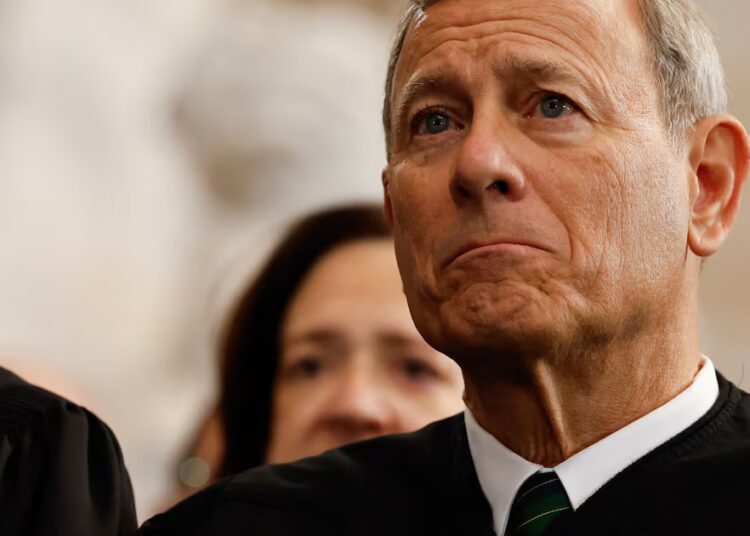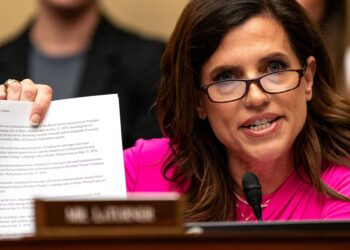RALEIGH, N.C. — Lea Charlton and her husband had grown used to finding ways to offset the “huge amount of money” she says treatments for her heart condition required. She and her husband even downsized their house a few years ago.
When she found out last year that she qualified for an Affordable Care Act health plan subsidized by tax credits, she felt relieved.
RALEIGH, N.C. — Lea Charlton and her husband had grown used to finding ways to offset the “huge amount of money” she says treatments for her heart condition required. She and her husband even downsized their house a few years ago.
When she found out last year that she qualified for an Affordable Care Act health plan subsidized by tax credits, she felt relieved.
That relief turned to alarm when the 60-year-old former occupational therapist checked her 2026 premium on the federal marketplace.
The price was $1,825.82 per month, double her last plan.
“It’s seriously horrifying,” said Charlton, who has had several strokes in the last few months. “We may have to sell the house again, but we will lose so much money we poured into it after Hurricane Helene.”
The price increase is due to the end of an expanded Affordable Care Act tax subsidy program, which, barring congressional action, will expire at the end of 2025. A deal to hold a vote on extending the subsidies, which sat at the heart of the shutdown, emerged in the Senate on Sunday. It is unclear whether that vote will succeed, and whether it will be considered in the House.
Insurance companies have assumed that the enhanced subsidies will sunset as planned and that the number of people enrolled will shrink, leading to higher premiums for 2026 plans.
Voters who are panicked about rising health care costs have already become the face of the Democrats’ 2026 midterm campaign in North Carolina. At the national level, Democrats hope to find a way to hold onto Rep. Don Davis’ seat after his district was redrawn to be more favorable for Republicans, and they hope to retake a Senate seat held by retiring Sen. Thom Tillis (R).
“People are saying, without the affordable care tax credit, families like mine will be forced to choose between health care coverage and the everyday essentials that keep our children healthy and our homes stable,” Davis said.
In North Carolina, almost 1 million voters receive ACA subsidies, accounting for 10 percent of the population; more than 888,000 people in the state receive enhanced premium tax credits, according to an analysis by KFF, a health care research organization. A separate KFF study found that marketplace customers who received the enhanced subsidies will have to pay as much as 114 percent more to have insurance next year.
The end of the enhanced ACA subsidies has rattled a community already stricken with health care concerns.
Rural hospitals in the state were already under strain following pandemic-era funding shortfalls. The low density of insured residents in rural areas has made keeping hospitals open financially difficult. Twelve hospitals in North Carolina have closed since 2005.
Charlton, who lives in Mitchell County, roughly 60 miles northeast of Asheville, credited her local hospital with saving her life. She needed immediate care when she suffered her first midbrain stroke in June. Her local emergency room is only a short drive from her home; the next nearest hospital is about an hour away.
Some health care providers have also raised concerns about the cuts Republicans’ One Big Beautiful Bill Act made to Medicaid. North Carolina’s health department has said it will apply for a federal funding program meant to offset the bill’s Medicaid reductions.
Tillis was one of only three GOP senators who voted against the bill. He argued that the Medicaid cuts could imperil rural hospitals, like Charlton’s, and would cost his state $32 billion in scrapped federal funds.
Former North Carolina governor Roy Cooper, the Democrat running to replace Tillis, has argued during his campaign that the OBBB puts access to health care in danger. He said he supports the extension of ACA tax credits, adding that North Carolinians “simply cannot afford the skyrocketing health care costs we’re about to see” due to the expiring subsidies.
At a late October news conference in North Carolina Democrats’ headquarters, Democratic state Sen. Gale Adcock, formerly a nurse practitioner, pointed to the shutdown battle as proof that Democrats are the defenders of health care.
“It’s clear Republicans don’t want you to have affordable health care,” Adcock said.
Former Republican National Committee chair Michael Whatley, the GOP’s Senate nominee, has rejected the idea that Republicans are against health care access. He claimed that Democrats are “insisting on taxpayer-funded health care for illegal aliens” and that these demands are responsible for the shutdown.
Brock McCleary, a former pollster for President Donald Trump and owner of Harper Polling, said which party benefits from the battle over the enhanced subsidies — and health care more broadly — will only become clear next year.
“Next November, no one’s going to remember the shutdown. What they’re going to see is mail in their mailboxes and ads on television that essentially use the arguments that have come out of it come campaign time: [Democrats] are going to say Republicans hate Medicaid. Basically this is a microcosm of the midterm.”
North Carolinians — including early retirees like Charlton, small business owners worried about covering health care costs for their employees next year and the self-employed — say they are concerned about the cost of insurance, and they want their leaders to find a solution.
“I hear from both sides … broadly speaking, there’s a lot of concerns about health care because beyond the shutdown; it’s been an ongoing issue for us,” Davis said.
But a widespread desire for an extension of enhanced ACA subsidies does not mean Democrats will have an easy time in North Carolina next year. Mike Cole, 50, an independent voter who lives on the outskirts of Raleigh, said he’s angry at “everybody” — Democrats and Republicans — for his increased premiums.
“I don’t think the majority of people in Washington understand what we go through on a daily basis,” Cole said.
When Cole and his wife, both in their early 50s, became gig workers in 2019, their collective premium was about $800 per month. Now in 2026, they are looking at $1500 per month, with a deductible that will be $1500 higher than before.
“I was hospitalized this year for the first time ever, and my wife had to have knee surgery,” Cole said. “Without the insurance, we would have been screwed. But with these costs and deductibles, we are screwed.”
Voters across the state echoed Cole’s frustration, adding that they are not just angry at how the central government has handled the extension of the enhanced ACA subsidies — they’re angry at how the program was structured in the first place.
Congressional Republicans have said the subsidies were poorly structured. Some federal Republican lawmakers have argued that the subsidy program was so plagued by fraud and abuse that it should be allowed to die. But other congressional Republicans say if the program is to be extended, it needs serious reform.
Greg Collins, 53 — a recently retired firefighter from Union County who does not buy his insurance on the federal marketplace because he receives employer-sponsored benefits as part of a local government package — advocated for reforming the subsidy program. He said he blames both sides for the “childish” shutdown, and he would like to see lawmakers compromise on federal health care spending.
“I’m a conservative Republican so my thing is: I’ve always had to pay for mine, so if you can work, you should; for those that can’t, there should be some help. But there’s got to be some control over it,” Collins said.
Former Republican governor and Charlotte’s longest serving mayor Pat McCrory said the feeling Collins and Cole expressed — that both parties are to blame for rising health care costs — is accurate. McCrory said North Carolina couldn’t afford to expand Medicaid when he was governor, and budget problems at the state and federal levels have led to gaps in care, while also making subsidies difficult to manage.
“I think both parties have failed us,” he said. “Everyone has seen the writing on the wall. Rising prices of hospitals, of insurance, of deductibles. It’s been out of control during [President Barack] Obama’s time and during Trump’s time.”
As much as voters appear to be concerned about their health care costs, McCleary, the pollster, questioned how much the issue will be a factor next year. He said his work found that besides the cost of living, a candidate’s political party and immigration matter most to voters ahead of the midterms. Voters may not give each of these matters equal weight. McCleary also said his polling shows that unaffiliated voters — the largest voting bloc in the state — put Medicaid and health care third on their list of priorities. Both issues may factor into how the unaffiliated vote.
Some conservative, low-income voters who voted for Trump appear regretful in the face of slashed health care and SNAP benefits, but they also respond positively to Republican public safety messaging, according to Robert Dawkins, political director for Action NC, a nonpartisan, nonprofit organization focused on economic and social inequality.
When conservative voters start to voice concern about losing benefits, Republicans “just switch it over and start talking about safety,” Dawkins said, adding that the strategy has seemed especially effective after a video went viral of a Ukrainian refugee being stabbed to death on Charlotte’s light rail line earlier this year. The success of these attacks might blunt Democrats’ attempts to pull in Republicans and conservative-leaning independents using health care, he said.
Charlton, however, believes health care will be a big issue on the minds of voters next year, especially because rising premiums are intrinsically linked to the cost of living. She thinks the burden of increased health care costs for low- to middle-income families in her deep red area could be the tipping point that makes some of her triple-Trump-voting neighbors turn away from Republicans, and she argues there has already been a tide change.
She and her husband have been actively anti-Trump. When the couple placed Harris-Walz sign outside their house last year, “we had raw sewage thrown on our car and lots of middle fingers,” she said. A No King’s rally in town in February drew four protesters.
But at the Mitchell County No Kings rally on Oct. 18, close to 700 people participated, she said.
“We are surrounded by middle- to lower-income families, and it appears to me that they are struggling and will really struggle,” she said. “What they are really going to pay attention to is their pocketbook.”
The post The health care battle behind the shutdown roils North Carolina politics
appeared first on Washington Post.




